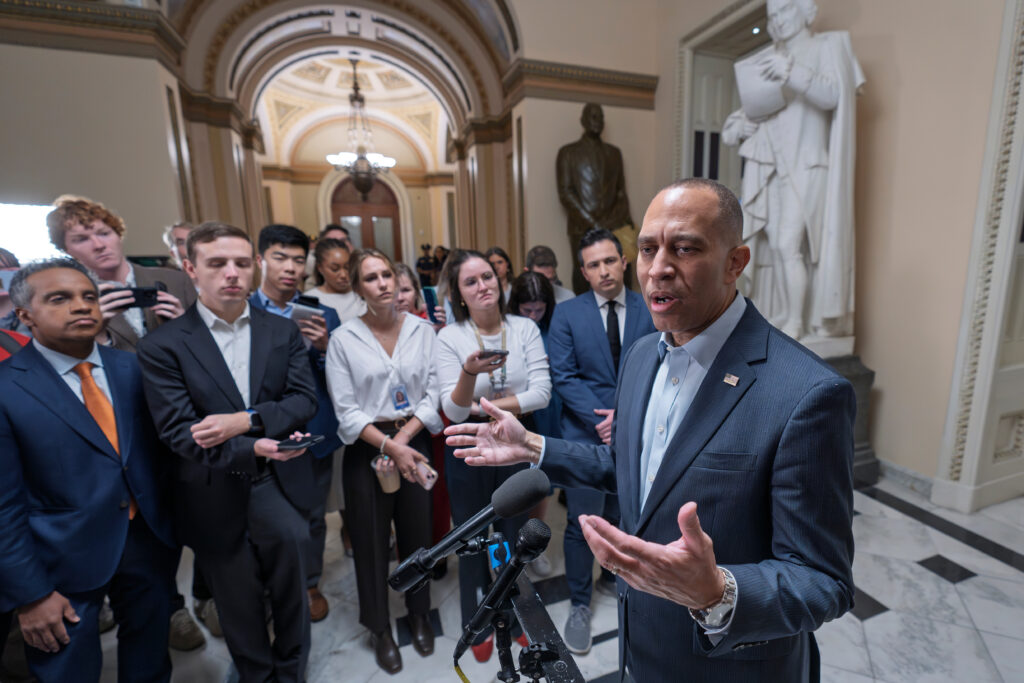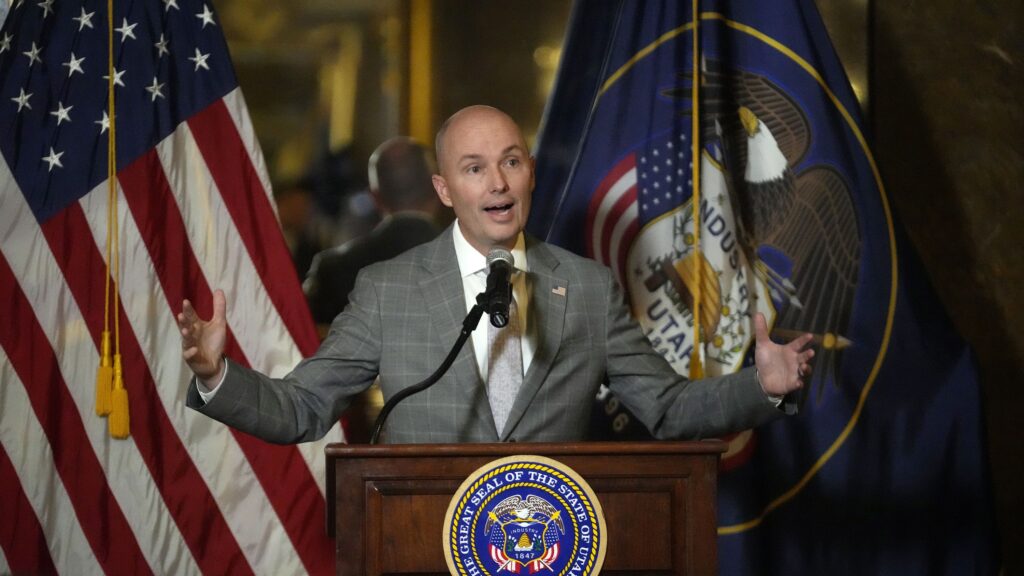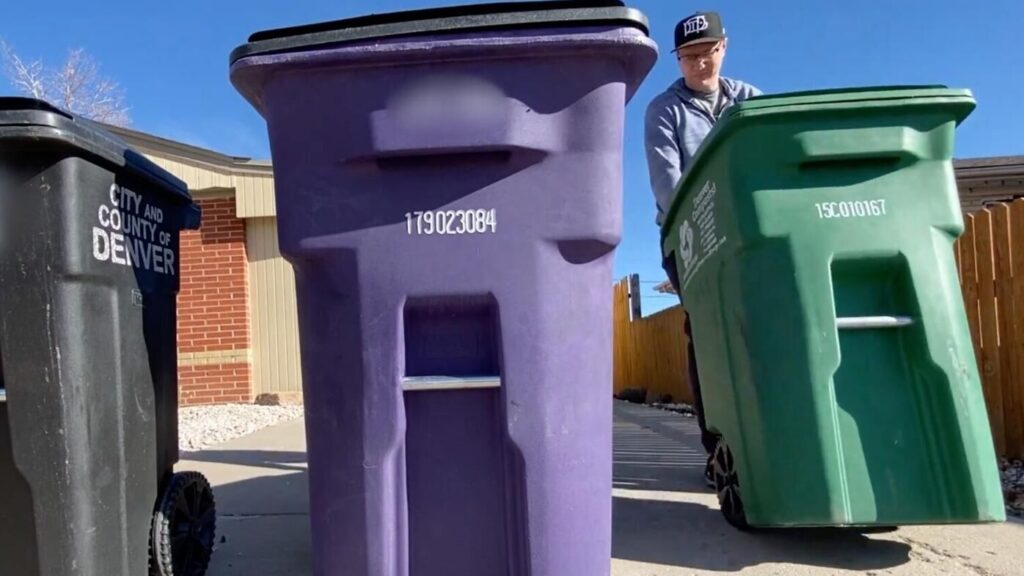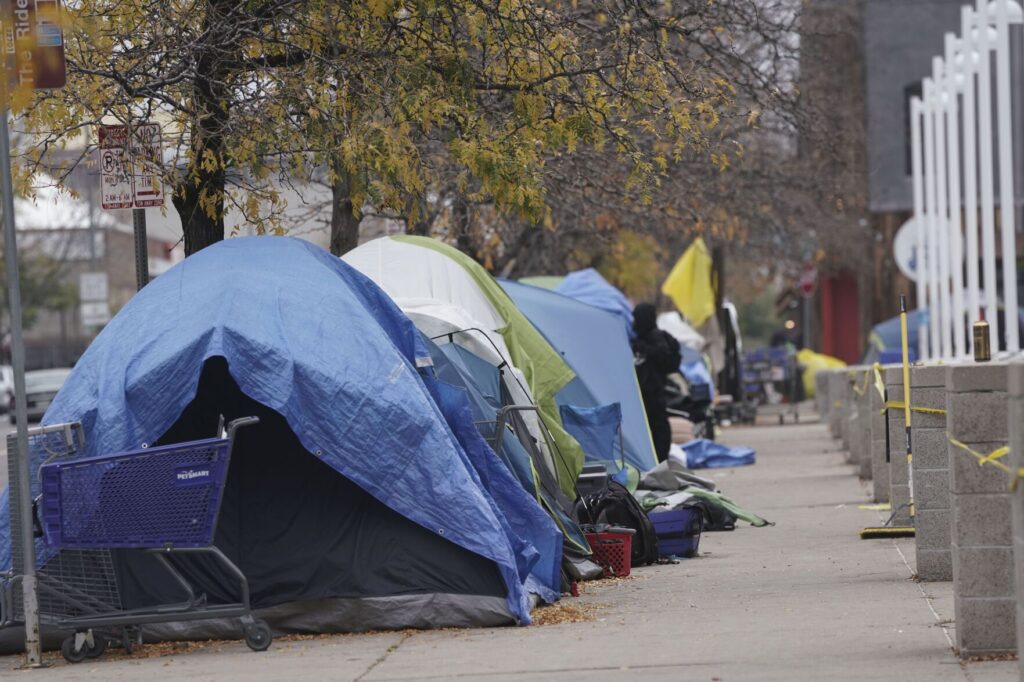Legislative panel rejects request for audit of state health agency’s COVID-19 testing contracts
An audit request from Sen. Rob Woodward, R-Loveland, for two contracts between the Colorado Department of Public Health and Environment and two labs handling COVID-19 testing was turned down on a 4-4 tie by the Legislative Audit Committee.
The committee is half Democrat, half Republican, hence the potential for a tie vote. The panel killed the proposal along party lines, with Democrats balking at the request and Republicans supporting it.
Woodward first submitted the audit request to the committee last July but withdrew it in October after facing a potential “no” vote.

Sen. Rob Woodward, R-Loveland
As first reported by The Gazette last year, the first contract was with Curative Labs Labs, which snagged a $90 million, no-bid contract with the Colorado Department of Public Health and Environment to provide surveillance testing in Colorado nursing homes in 2020, where one of every 15 residents died from the coronavirus.
According to The Gazette’s reporting, records show that Gary Lauder, a financial donor for Democrats and an influential backer and investor in Curative Labs Labs, introduced the company’s CEO and Kacey Wulff, Polis’ pandemic adviser at the time, at a weekend getaway Lauder took with Wulff and her husband.
In emails, Wulff forwarded promotional material from Curative Labs Labs to state health officials in charge of picking firms to provide coronavirus testing. Curative Labs obtained a state contract worth nearly $90 million for coronavirus surveillance testing in Colorado nursing homes and other other hot spots, generating consternation from nursing home administrators. Wulff, after Curative Labs started providing tests in the state’s nursing homes and other hot spots, thanked Lauder for flagging Curative Labs for state officials, emails show.
The state’s relationship with Curative Labs soured, and the state severed ties with the company on Jan. 26, 2021 after federal regulators warned state officials they allowed the company’s tests beyond regulatory limits, potentially putting vulnerable nursing home residents in harm’s way. Colorado officials stopped the use of Curative Labs Labs tests in nursing homes in January, 2021.
The second contract was with eMed, which was awarded a contract valued at up to $53 million in 2021 to deliver as many as two million coronavirus at-home tests monthly for front-line workers, educators and school staff. But while Curative Labs tests got widespread use under the state’s protocols, eMed saw distribution of self-administered tests stall due to what company officials describe as a cumbersome and bureaucratic registration and survey system administered by the state health agency.
Less than 13% of the two million tests were actually delivered.
Woodward reminded the audit committee Tuesday that members had asked for more time last October when the committee first reviewed the request. At that time, members also suggested to Woodward that the executive committee, made up of the leadership of both parties of the House and Senate, might be an appropriate venue for reviewing and then submitting the audit request. That could fall under legislation pertaining to updates from the executive branch on COVID operations contained in House Bill 20-1426.
The executive committee reviewed Woodward’s request on Dec. 16 but declined to take action on it.
“In the fall of 2020,” Woodward said Tuesday, “1,118 patients in long-term care facilities died, during a time period in which the only testing they were being provided were faulty tests from Curative.”
Rep. Dafna Michaelson Jenet, D-Aurora, said her main takeaway was that Sarah Tuneberg, the state health agency’s COVID-19 testing chief, met with the executive committee in December. Tuneberg told the committee she made the decision based on the best science and data at the time.
“I don’t know if there is more that can be done” in moving forward the audit request, Michaelson Jenet said.
Woodward replied that it would be up to the audit to see if that statement is true.
“I do not take her at her word that it was the best choice,” and only an audit would reveal if the state health agency made shortcuts to the process, he said.
Moving forward would allow the auditing staff to do initial research in preparation for an audit, according to Sen. Jim Smallwood, D-Parker, the committee’s chair.
Republicans later pointed out that one of the committee members, Rep. Dylan Roberts, D-Eagle, was replaced for Tuesday’s meeting by Rep. Andrew Boesenecker, D-Fort Collins, a first-time attendee to the audit committee.
Compass Colorado’s Kyle Kohli indicated Roberts’ absence was tied to his candidacy for Senate District 8 in the 2022 election. The letter from Speaker of the House Alec Garnett to the committee, announcing Roberts’ replacement, was issued less than 30 minutes prior to the committee meeting, which started at 8:30 a.m.
“Dylan Roberts needs to explain why he allowed Democrats to kill a nonpartisan investigation into the state’s use of faulty COVID tests in nursing homes,” Kohli said in a statement.
Roberts told Colorado Politics that he missed the meeting to take care of a medical issue, and he was present for roll call later in the morning.
The House and Senate delayed their openings on Tuesday due to the snowstorm and didn’t start the day until 10:30 a.m., 90 minutes later than usual.

















